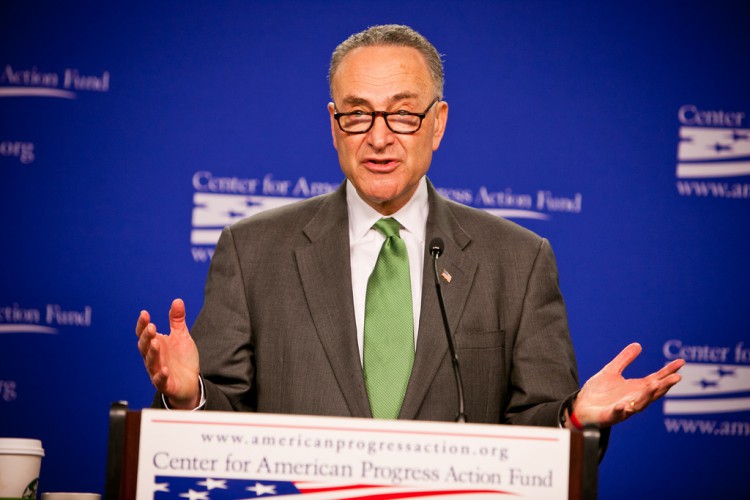U.S. Sen. Charles Schumer (D-NY) was elected Wednesday leader of the Senate Democratic minority, making the seasoned senator from Brooklyn a key check on Republican control of Congress and the White House.
As Senate minority leader, Schumer is up against a 51-48 GOP majority that will likely gain one more seat in a Louisiana runoff election next month. But because Senate rules require 60 votes to end debate on bills before legislation can be passed with a simple majority vote, Schumer and the Democratic caucus are effectively the last stand against President-Elect Donald Trump’s agenda.
“When we can agree on issues, then we’re gonna work with him,” Schumer told reporters during a news conference announcing that Democratic senators voted to promote him. “We’re not just gonna—as some have done here in the past—say, ‘Just because it’s President Trump’s idea or thought, we’re going to oppose it, per se…’ On issues where we disagree you can expect a strong and tough fight.”
Schumer, 65, who voters re-elected to a fourth six-year term last week, will replace retiring U.S. Senate Minority Leader Harry Reid (D-Nev.). His counterpart, House Minority Leader Nancy Pelosi (D-Calif.) is reportedly facing a potential challenge as she seeks re-election to her leadership post.
Since the election last week, political observers are watching closely to see if Republicans will move to curtail Democrats’ use of the filibuster to block Trump’s agenda, much like the GOP did for President Barack Obama when Democrats had the majority. But experts suspect that U.S. Senate Majority Leader Mitch McConnell (R-Ky.) likely doesn’t have the votes needed to change the rules, since some Republican senators may be reluctant to limit their use of the filibuster the next time they’re in the minority.
Besides the proposed repealing of Obamacare, the top issue expected to come before the Senate in the 115th Congress is the appointment of a replacement for the late U.S. Supreme Court Justice Antonin Scalia. Schumer noted that he was “deeply disappointed” that the GOP didn’t confirm Obama’s nominee, Merrick Garland. Trump has said he would name a right-leaning Supreme Court nominee within his first 100 days in office.































